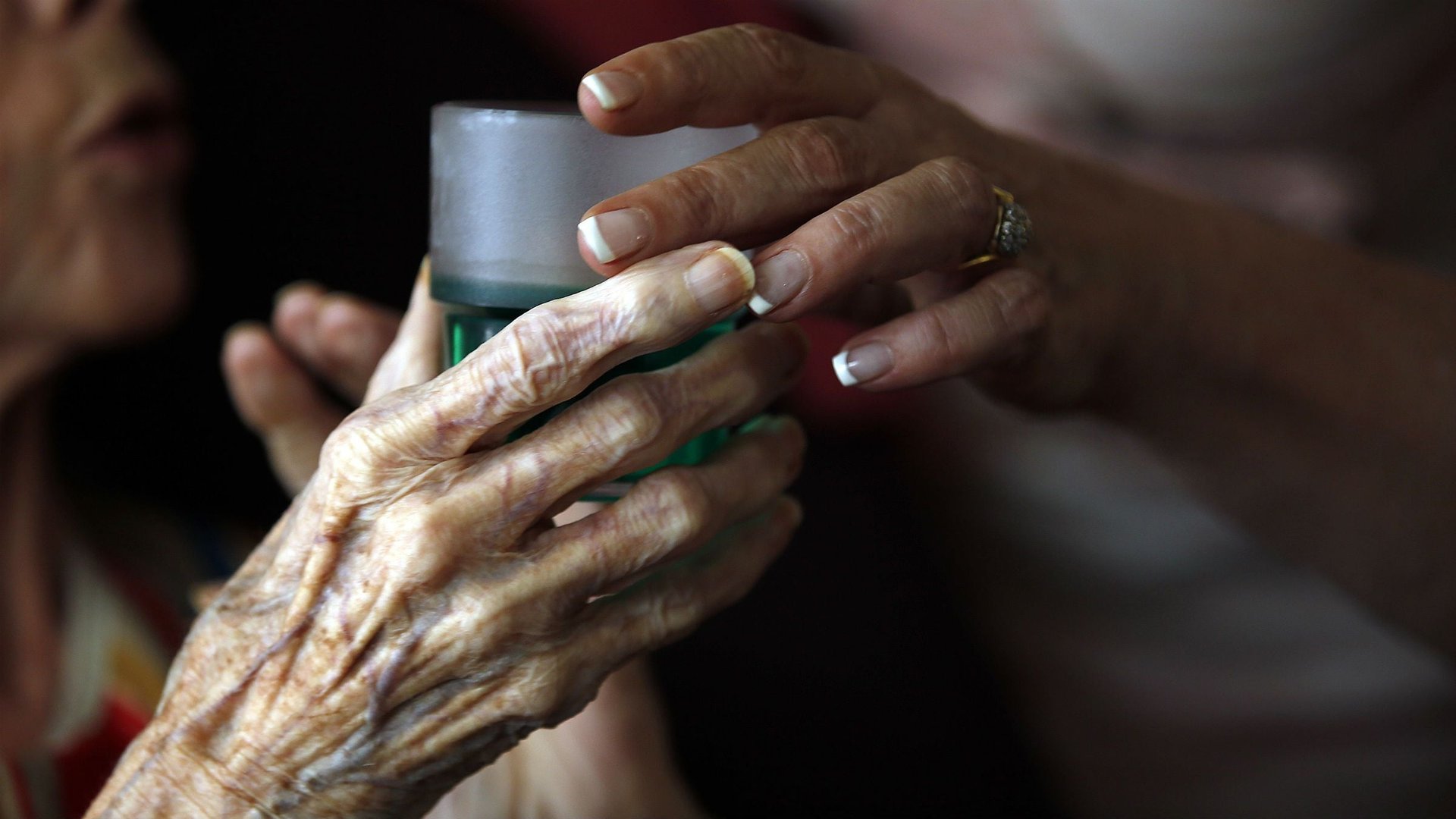The two words you shouldn’t say when someone dies
My mother-in-law died on March 5. Not surprisingly, most people’s reaction has been a somber “I’m sorry.” But before you say the same, let me tell you a little about her life—and death.


My mother-in-law died on March 5. Not surprisingly, most people’s reaction has been a somber “I’m sorry.” But before you say the same, let me tell you a little about her life—and death.
Born in Yemen and raised in Israel (Palestine at the time), my mother-in-law didn’t settle down and get married as most young ladies did back then. Instead, she made her way, alone, to post-war England, and then on to law school in Chicago, where she literally bumped into the man who would become her husband: A blind law school student. They picked up their scattered books and fell in love.
He died very young, but my mother-in-law lived a long, eventful life, leaving behind three grown kids who all get along, six grandchildren, and daughters-in-law who think she was just the coolest. She went peacefully, on hospice, which administered angelic doses of morphine when she could no longer fight off that antibiotic-resistant infection— Methicillin-resistant Staphylococcus aureus, or MRSA— that’s increasingly common in hospitals and nursing homes.
That’s where she was. For about five years she’d been in an assisted living establishment that provided more and more care as she grew less and less able, and where she enjoyed some of her very happiest time on earth. Concerts. Lectures. Friends. Good food, even! That in itself was a huge comfort to all of us. A comfort, too, was that when she got so sick, there were a few days of ailing and then a few more of semi-consciousness, and then she left this earth without any extra measures taken. No stomach tube. No heroic attempts. No transfer to a hospital.
At one point when she opened her eyes on her deathbed, my brother-in-law asked her how she felt.
“Wonderful.”
Her age? That remains a good conversation topic. As one of her college-age grandsons pointed out, at one point she had three different passports all with somewhat suspect birthdays. We do know she was somewhere in her 90s. And that’s why I am not so sure all the well-wishers saying, by rote, “I’m so sorry,” makes much sense.
If they are sorry for us, that we no longer have my mother-in-law to talk to, or visit, I understand. But if they are sorry that she passed away—which is what it sounded like to me—it’s a little hard to fathom. Of course they are being kind, and I appreciate that. Moreover, there aren’t a whole lot of great options in the “Things you can say to the bereaved” playbook. Nonetheless I found myself wanting to ask the folks on automatic-sympathy: “Are you sorry she was in Category A: ‘People Who Have to Die Eventually’? Because there IS no Category B.”
We are taught to regret the end of life no matter when and how it comes. Often, we are expected to fight it, even when the pills left in the bottle would be bitter indeed. I believe that life is a blessing. But extending it? Not always.
I am not sorry my mother-in-law is gone. It feels strange to say it, because I loved her and she loved me. But to wish for more time with her as she grew increasingly compromised and confused, or descended into pain and suffering?
No thank you.
I doubt I am the only one who feels taken aback by expressions of sympathy that seem to be removed from reality: “This must come as a blow.” “It’s always so hard.” “You can’t be yourself right now.”
It doesn’t. It isn’t. I am.
We do all die. If we’re lucky we do it a long time after we started out, and a very short time after we get weak and ill. And I think we’re even luckier if our loved ones miss us, perhaps forever, but are not sorry we left when we did.